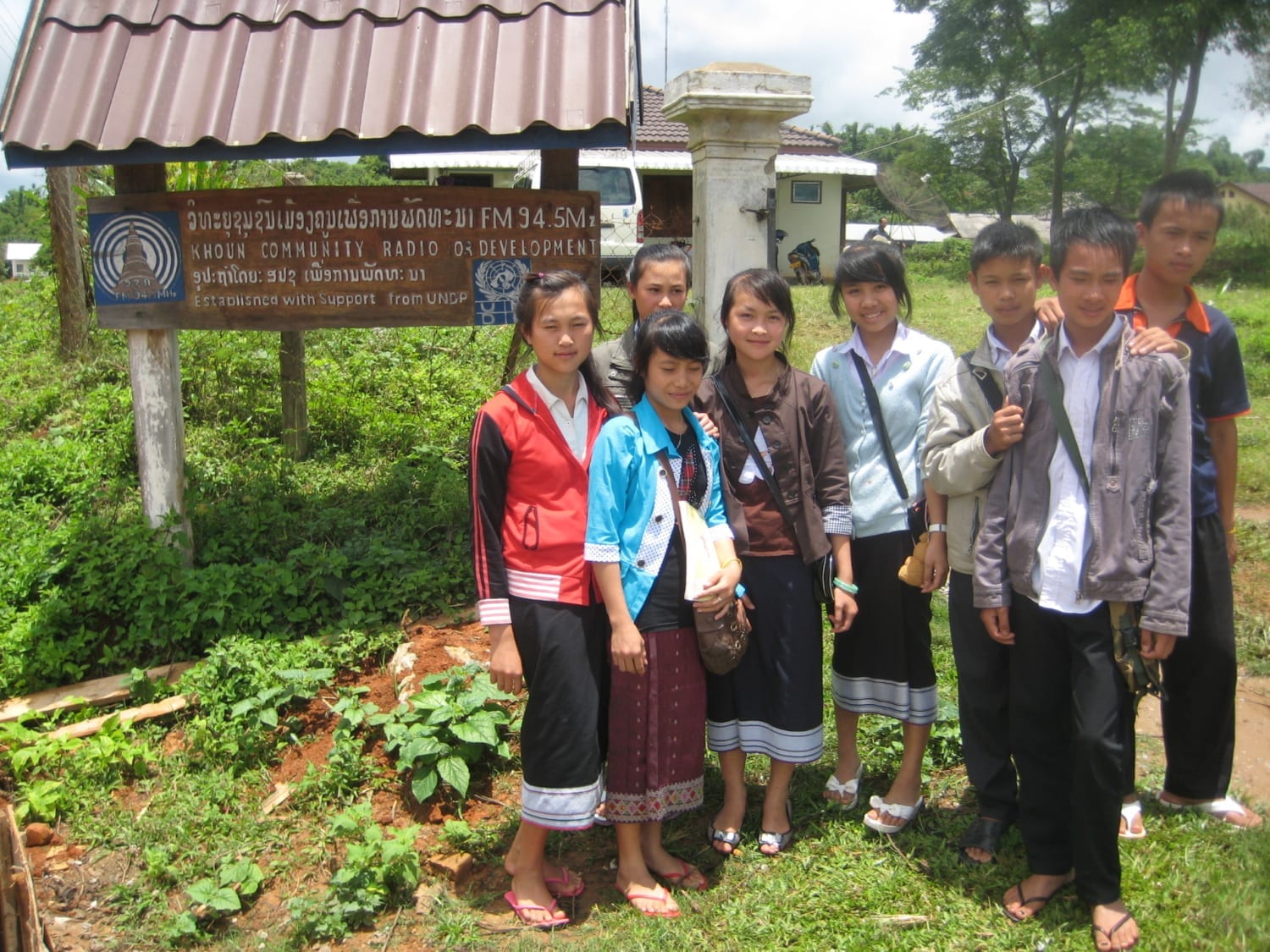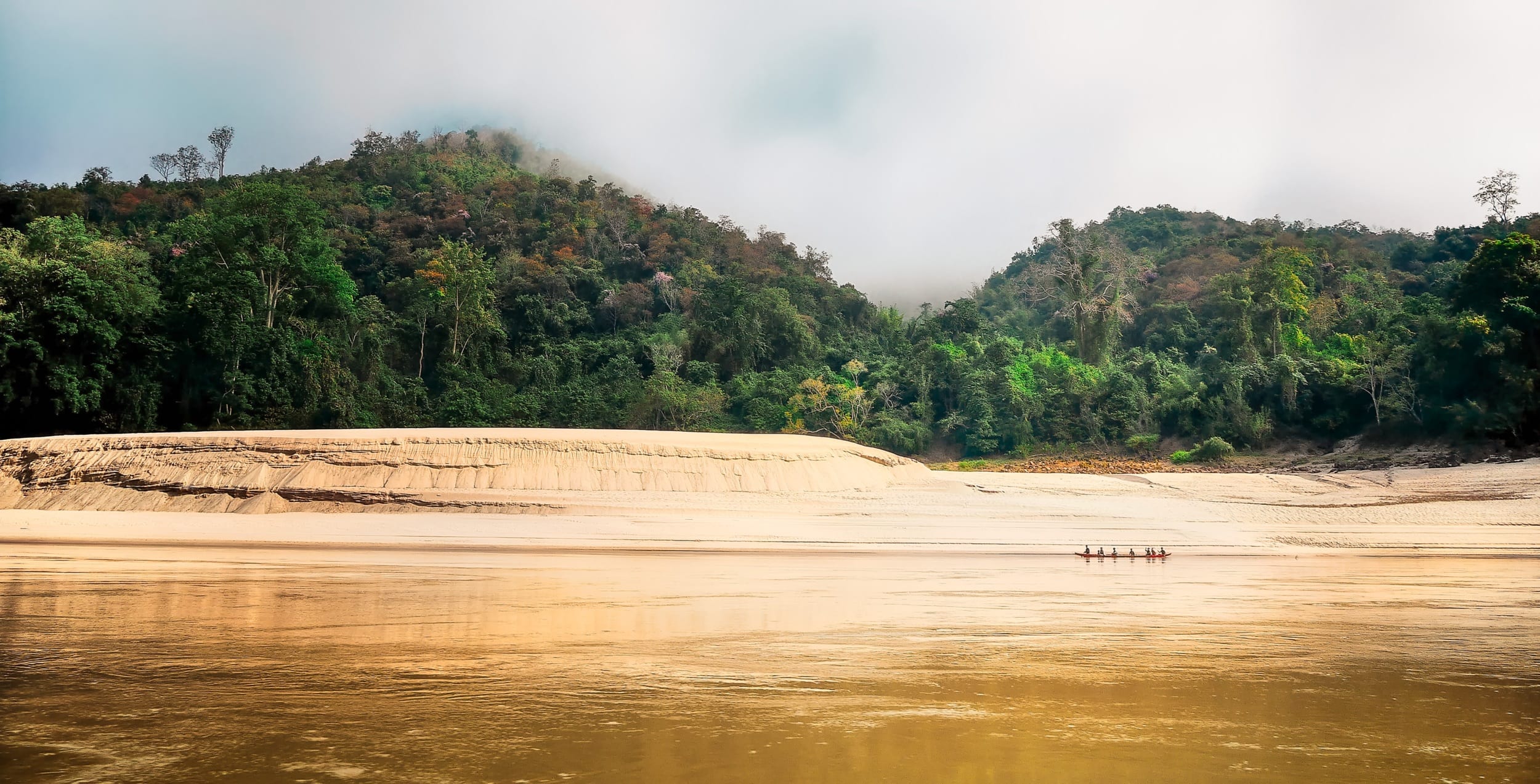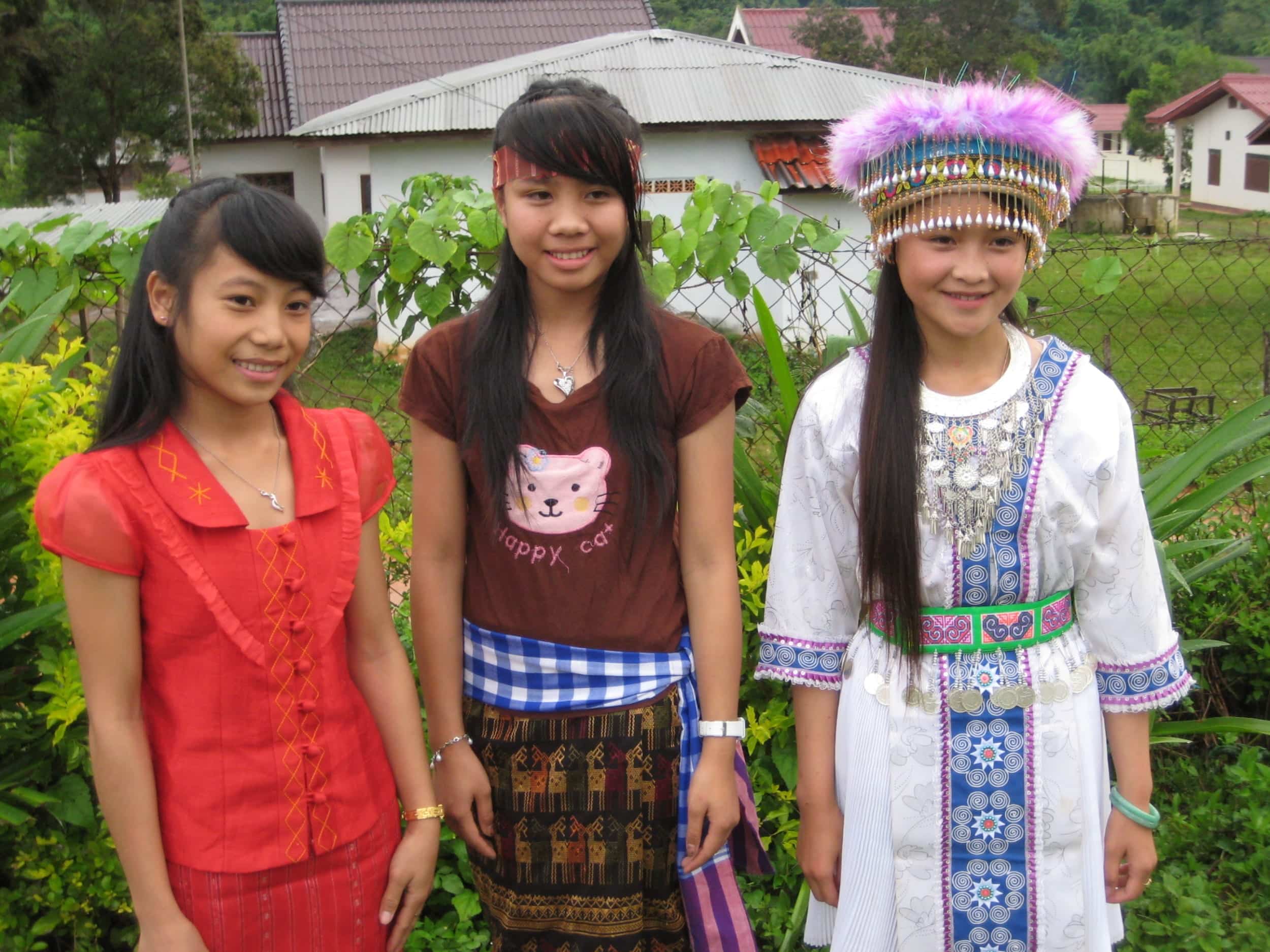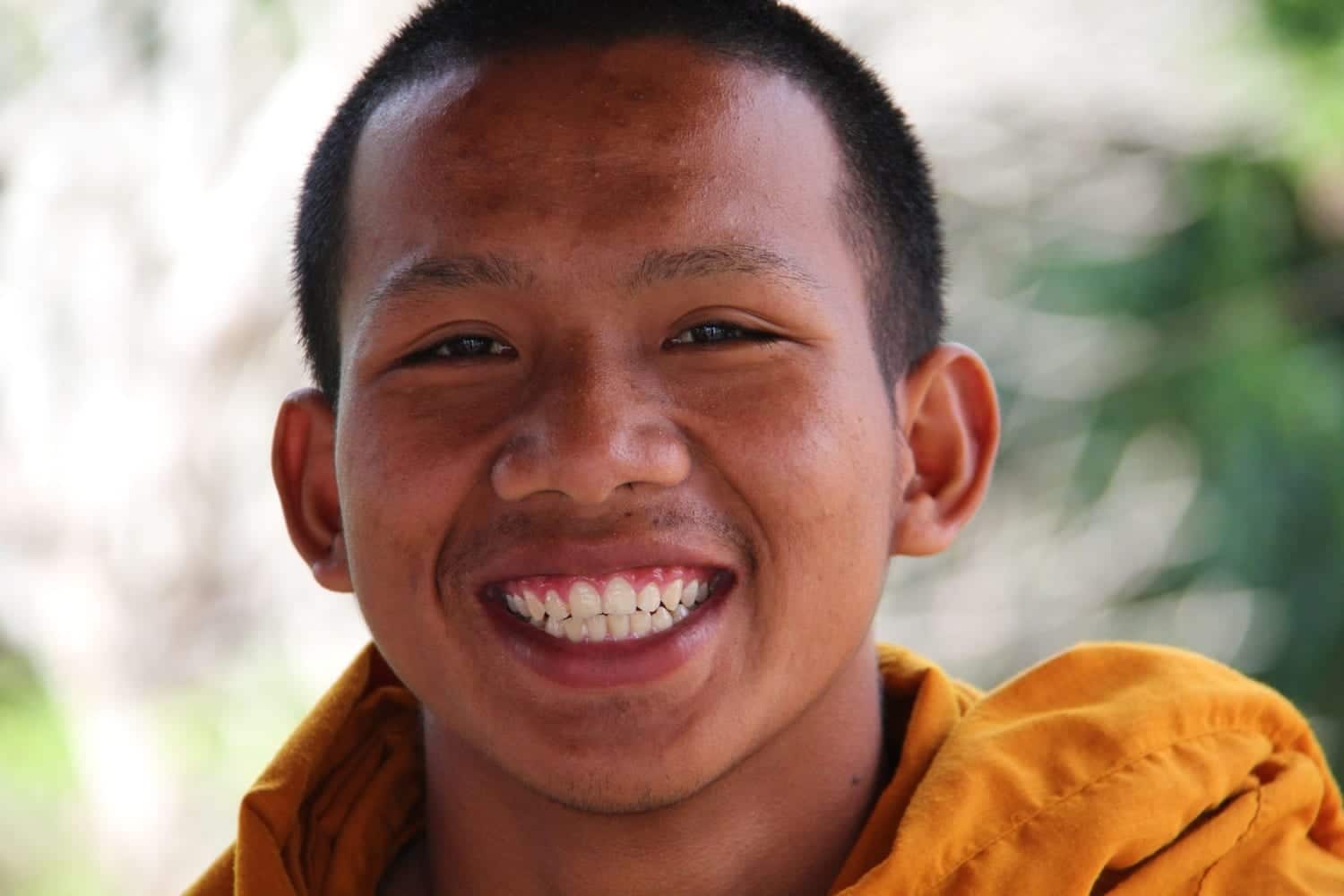

Lao radio lab extends access to information
In the government-controlled media environment of Laos, talk of democracy was forbidden. Yet through its 2010 Lao Radio Extension Project, EAI helped bring open-minded, youth-led radio programming to an impoverished district in northern Laos.
Project of, Laos, Foundation to Promote Open Society, Open Society Institute, UNDP

I want youth to be inspired to become active community members.”
– Kila, Assistant Team Leader
With support from the Foundation to Promote Open Society and the Open Society Institute, Equal Access International (EAI) brought youth-led radio to an oppressive media environment through the Lao Radio Extension Project. From November 2009 to November 2010, the project broadcast youth-oriented radio programming to an impoverished district in northern Laos. A group of young lower secondary school students in the Khoun District community were trained by EAI to produce a twice-weekly mixed live and pre-recorded magazine program called Youth, Heart, Friends. The program addressed youth issues ranging from education and environmental protection to youth roles in family, school, and social settings. The programs were broadcast on the Khoun Community Radio for Development station, an initiative launched by the United Nations Development Program and the Lao government to establish the first community-managed radio station in the country.

PROJECT ACTIVITIES:
Training Workshop: A four-day workshop for 21 trainees, including 13 youth radio producers selected by EAI and UNDP staff in Xieng Khouang, in addition to technicians and KCR station staff helped to support the youth production team during the project period. The training was presided over by the Khoun District Deputy Governor (and KCR station board chair) Bouathong Mangnormek, the KCR station director Vanphone Bounthavong, and UNDP staff from Phonsovanh, including project manager, Vongsone Oudomsouk. Two teachers from the school also joined the training and served as the students’ mentors during the project. Only one of the youth producers had previously worked with the KCR station, so the majority of participants were radio production novices and were exposed to youth life skills concepts for the first time during the workshop.
Radio Program Production: Following the May training workshop, the youth team spent some time honing their skills and exploring the lessons learned from the training. They also elected two youth coordinators who led two different production groups. The Youth, Heart, Friends program was broadcast regularly beginning from June 2010 on Saturday and Sunday evenings. The broadcast time, from 16:30 to 17:00, was chosen to attract a range of listeners due to its convenient time towards the end of the workday (given the agriculture-based economy in the area, many people, including youth, work in the fields on weekends). The program followed one of two formats: either a live chat show hosted by two presenters accepting calls from audience members, or a pre-recorded “magazine” program that combined presenter chat, interviews and reports, and fictionalized drama segments. Both formats were meant to be both educational and entertaining and to create a space for youth in the community to share their viewpoints with others in the area.
Equal Access Site Visit: In early August, members of the EAI team from the country office in Cambodia and the UNDP project team traveled to the Khoun Community Radio site. Following a courtesy meeting with the district governor and party secretary, EAI met with nine of the youth producers in Khoun. The Youth, Heart, Friends production team explained their progress to date and discussed some of their successes and challenges.
Echo Training: Eight new youth radio producers were chosen by the Youth, Heart, Friends producers in September, and by October these young people were being trained informally by the team. At the end of the month, a five-day workshop was organized by the youth themselves with assistance from EAI and KCR. The eight new youth (four females) were between 12 and 15 years old. They were joined during the training by one volunteer villager, who assisted with another radio program, and two younger students, 16 and 17, who served as general volunteers at KCR. The main topics covered during the training included:
- How to produce a radio program
- Research, scripting, and broadcast planning
- Editing a radio program using computer software and recording tools

"I was shy, but now I am not shy… I have the courage to speak up.” - Project Trainee, Youth Producer
Impact & Reach of this Project
200
young professionals trained in radio program production and broadcast
40,000
regular radio listeners were reached
16
hours of original radio programs were produced